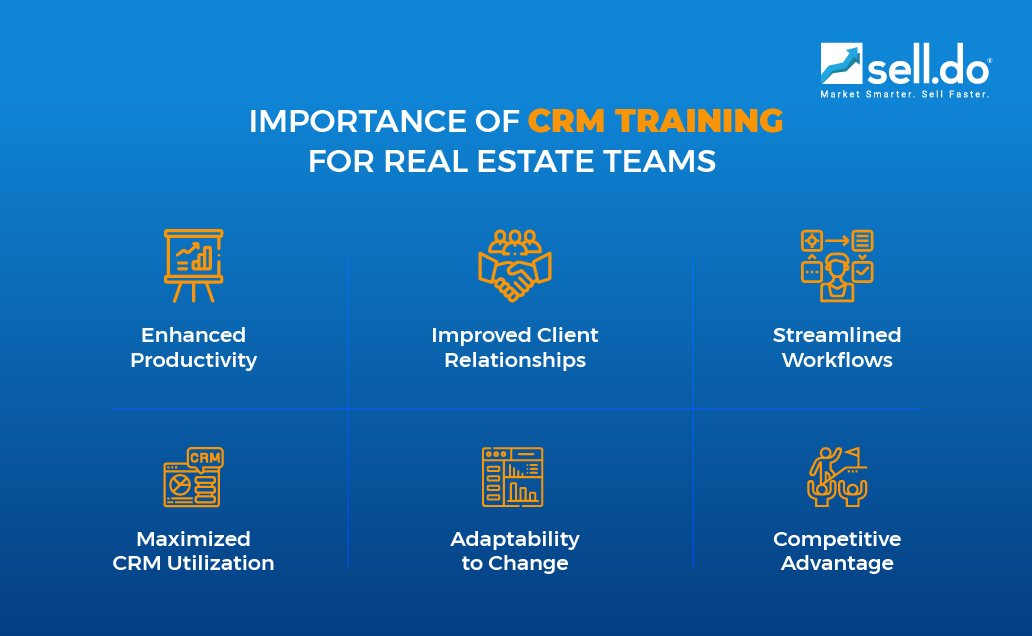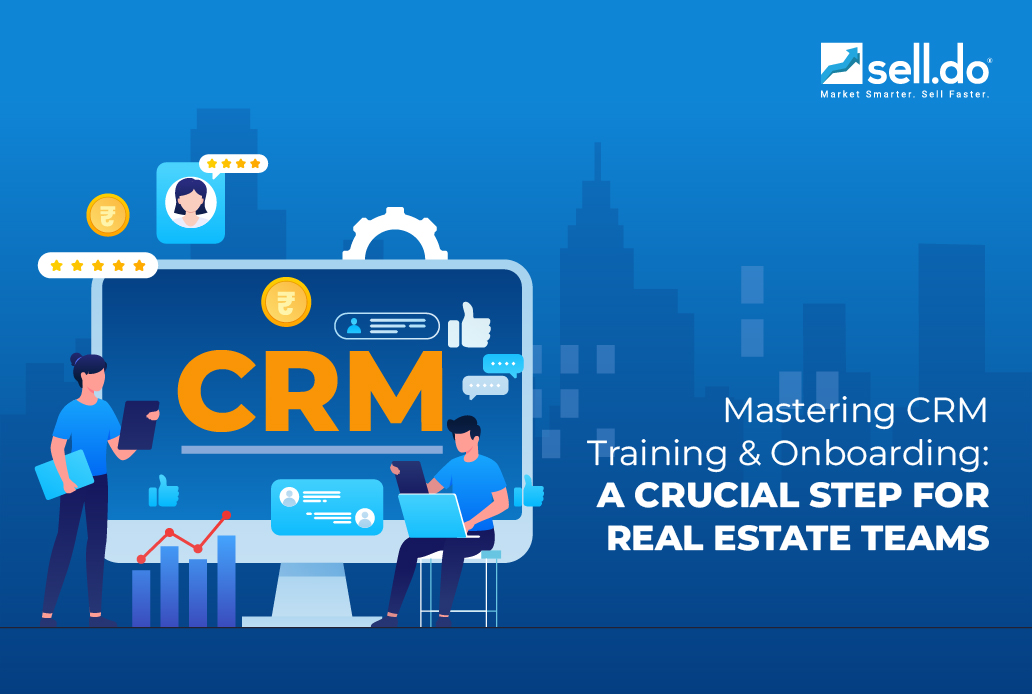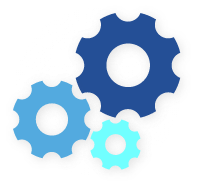In today's ever-growing real estate industry, navigating through complex situations, including client interactions, deal management, and market trends, demands more than just traditional methods. This demand raises the idea of integrating real estate CRM (Customer Relationship Management) software in the workflow process. CRM tools are an important pillar of modern real estate operations. These robust platforms offer a centralized hub for organizing client data, tracking leads, and optimizing communication, revolutionizing how real estate professionals conduct business. However, the true potential of CRM systems can only be unlocked through effective real estate CRM training and onboarding.
CRM systems not only streamline processes but also offer valuable insights that make the decision-making process easy and quick. By analyzing data collected within the CRM, real estate professionals can identify trends, forecast market changes, and customize their strategies to meet evolving client needs.
However, using the full power of CRM requires not just technical understanding but also a deep knowledge of how to leverage data to drive business growth. Effective training and onboarding play a crucial role in equipping real estate teams with the skills and expertise needed to harness the analytical capabilities of CRM systems effectively.
Importance of CRM Training for Real Estate Teams
CRM training for real estate teams is essential as it equips them with the necessary skills and knowledge to utilize CRM systems effectively, enhancing their overall performance and productivity.

Here's why CRM training is important:
-
Enhanced Productivity:
Proper training allows real estate professionals to navigate CRM systems efficiently, saving time and effort in managing client data, leads, and interactions.
-
Improved Client Relationships:
Training enables agents to leverage CRM functionalities to understand client preferences, track interactions better, and provide personalized service, leading to stronger client relationships.
-
Streamlined Workflows:
Thorough CRM implementation training for real estate teams makes it easier for them to optimize workflows by automating repetitive tasks, ensuring consistency in processes, and minimizing errors.
-
Maximized CRM Utilization:
Training ensures that users are aware of all the CRM system's features and capabilities, enabling them to utilize its full potential and extract valuable insights for decision-making.
-
Adaptability to Change:
Continuous training allows real estate professionals to stay updated with advancements in CRM technology.
-
Competitive Advantage:
Well-trained teams are more efficient and capable of delivering superior service, giving real estate businesses a competitive edge in the market.
Key Components of Effective CRM Training
-
Comprehensive Software Orientation:
-
Familiarizing users with the CRM interface and navigation.
-
Understanding the purpose and functionality of features.
-
-
Learning about Key Features:
-
Exploring tools tailored to real estate tasks such as lead management and client communication.
-
Understanding how to customize features to suit specific needs.
-
-
Hands-On Practice Sessions:
-
Providing opportunities for users to apply newly acquired knowledge in simulated real-world scenarios.
-
Encouraging experimentation and problem-solving to build confidence in system usage.
-
Customized training programs designed to cater to the needs of real estate professionals ensure that agents can effectively apply CRM tools to their daily tasks.
-
Onboarding Strategies for Seamless Integration
Effective onboarding strategies are essential for ensuring a smooth transition to CRM systems. Here’s why:
-
Clear Communication:
-
Communicate the rationale behind CRM adoption and its benefits to all stakeholders.
-
Set clear expectations regarding the onboarding process and its timeline.
-
-
Ongoing Support:
-
Provide readily accessible support channels such as FAQs, help desks, and dedicated training sessions.
-
Assign mentors or experienced users to assist newcomers and address their queries.
-
-
Feedback Mechanisms:
-
Encourage open communication and feedback loops to identify pain points and areas for improvement.
-
Use feedback to refine training materials and tailor support resources to users' needs.
-
By prioritizing user experience and addressing concerns proactively, real estate teams can minimize resistance to change and accelerate the adoption of CRM solutions. Structured onboarding processes have been shown to enhance new hire productivity by 54%.
Leveraging Resources and Support Channels:
A variety of resources and support channels are available to facilitate CRM training and onboarding:
-
Internal Training Materials:
-
Develop comprehensive guides, tutorials, and video walkthroughs tailored to the organization's workflows.
-
Implement real-life examples and case studies to illustrate best practices.
-
-
Online Tutorials and User Forums:
-
Utilize online platforms to provide self-paced learning opportunities.
-
Build a community where users can exchange knowledge, share tips, and troubleshoot issues collaboratively.
-
-
Vendor Support and Training Programs:
-
Leverage vendor-provided resources such as documentation, webinars, and dedicated training sessions.
-
Take advantage of vendor support services to troubleshoot technical issues and address system-related queries.
-
By effectively using these resources, real estate teams can empower users to continuously enhance their CRM skills and adapt to evolving business requirements. Investing in ongoing education and skill development contributes to long-term success and competitiveness in the real estate market.
Measuring Success and Continuous Improvement
To gauge the effectiveness of CRM training and onboarding initiatives, real estate teams can track Key Performance Indicators (KPIs) such as:
-
User Adoption Rates:
-
Monitor the percentage of team members actively using the CRM platform.
-
Identify patterns and trends in adoption rates across different user groups.
-
-
Productivity Improvements:
-
Measure changes in key metrics such as lead conversion rates, deal closure times, and transaction volumes.
-
Assess the impact of CRM utilization on overall team efficiency and performance.
-
-
Client Satisfaction Scores:
-
Gather feedback from clients regarding their experience with the CRM-enabled services.
-
Use client satisfaction scores to assess the effectiveness of CRM-driven interactions and service delivery.
-
By analyzing these metrics and soliciting feedback from stakeholders, real estate teams can identify areas for improvement and refine their CRM strategies. Continuous improvement processes enable organizations to adapt to evolving business needs and optimize CRM utilization over time.
Conclusion:
Mastering training strategies for real estate CRM is of utmost importance for real estate professionals seeking to thrive in today's competitive market. By investing in comprehensive training programs, teams can unlock the full potential of CRM software and drive business success.
Experience the power of Sell.Do, India's leading Real Estate CRM platform, backed by Aurum PropTech. Sell.Do integrates marketing, sales, and customer service functionalities into one comprehensive solution, empowering real estate businesses to automate workflows and enhance productivity. With precise lead targeting and personalized customer engagements, Sell.Do ensures maximum ROI.
Trusted by over 1000 real estate brands and recognized with six awards, Sell.Do is the best CRM for real estate solutions to enhance customer relationships and elevate real estate businesses.






Leave a comment
Comments (0)
Be the first one to comment.